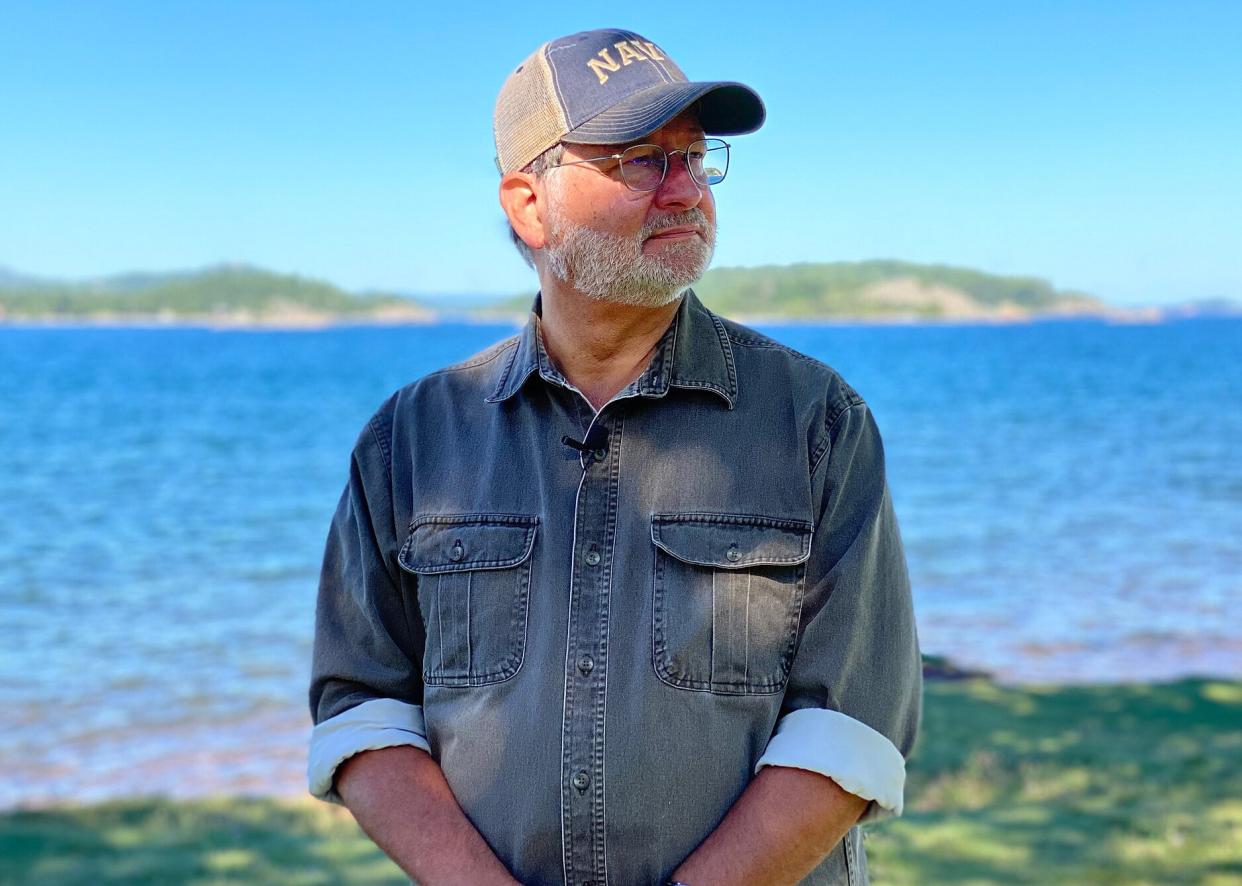Senator Gary Peters Pens His Family's Abortion Story: 'It's Not Unique and It's Why We Must Protect Roe v. Wade'

Courtesy Senator Gary Peters
Gary Peters is a U.S. Senator for Michigan and the chair of the Democratic Senatorial Campaign Committee. Here, he tells his family's abortion story in his own words:
This past week, our nation marked the 49th anniversary of Roe v. Wade. What seemed like a long-settled legal question — a woman's right to make her own health care decisions — is again under a very serious threat.
For many, this issue is not just about a legal case. It's about extremely tough, heart-breaking, painful decisions.
I know that, because, like so many folks, it was a situation my own family faced.
Two years ago, I shared my family's story of losing a wanted pregnancy — in which my first wife had to undergo a medical procedure that was necessary to protecting her health — and possibly her life.
My wife and I were getting ready to welcome our second child. That is, until, four months into her pregnancy, tragedy struck and her water broke.
When we went to visit the doctor, he made it very clear: there was zero chance the baby could survive without amniotic fluid. None. She would suffer a miscarriage — and we had to simply go home and wait for that to happen overnight.
And so we went home with our hearts shattered. Our minds in total shock. Our souls crushed. No words could describe the pain and loss we felt or the anguish she felt miscarrying.
But the miscarriage didn't happen that night.
When we went back the next day, the doctor told us to wait another day for the miscarriage – and effectively relive this trauma another night.
We waited for what seemed like a long, painful eternity.
Waited — for a baby we wanted so very badly — to miscarry.
But again — the miscarriage didn't happen.
We again returned to our doctor who became very worried about my wife's health and a sepsis infection that would not only endanger her health — and the possibility of ever having a child again — but could even put her life at risk.
Our doctor went to the hospital board, asking for an exception to their policy prohibiting abortions. I remember what happened next, vividly.
He left us a message on our answering machine. He'd been refused an exemption because there was a faint heartbeat detected, even though there was no chance for the fetus to survive. He told us the decision was just based on politics, not good medical advice or practices. He recommended we find another physician immediately due to worries about her health.
We were able to get her into another hospital quickly through a personal friend. When my wife was examined, the doctor was not only alarmed — he said an immediate emergency procedure was necessary for her health and possibly her life.
It was the kind of experience no one plans for or imagines — and one that you wish nobody would ever experience.
But the fact is: this is happening — all across our country. And while we were fortunate to see another doctor quickly — so many are not.
When I first shared my family's story publicly, I hoped it would help show the kind of real, gut-wrenching and complicated circumstances families face.
And I hoped it would underscore the importance of safeguarding Roe v. Wade and the rights it has granted to women and families — rights that are often exercised under the most trying of circumstances.
I'll never forget the outpouring of support I received from people from all walks of life, who didn't tell their personal story to anybody because of the trauma and pain, but felt comfortable sharing it for the first time.
Now, as the Supreme Court is reviewing a Mississippi law banning abortion at 15 weeks and overturning Roe v. Wade as we know it, I am sharing this story once again — because the stakes have gotten even higher.
The power of the Senate to confirm or reject Supreme Court Justices means Senate campaigns are the frontlines of the fight. We must send a firm message: attacks on Roe v. Wade and the rights of women to make their own health care choices will not be tolerated.
My story is one that is very personal, and painful — and folks all across the country face similar situations each and every day. That is why we cannot afford to go backwards. In 2022, we must protect the right of patients to make their own medical decisions without interference from politics.

